Rania Khalaf
From Robotic Process Automation to Intelligent Process Automation: Emerging Trends
Jul 27, 2020
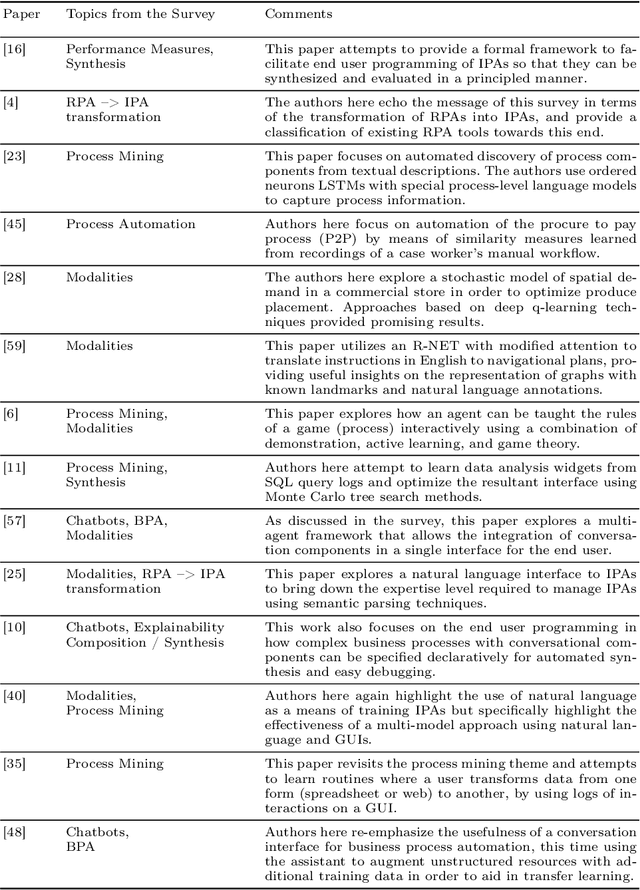

Abstract:In this survey, we study how recent advances in machine intelligence are disrupting the world of business processes. Over the last decade, there has been steady progress towards the automation of business processes under the umbrella of ``robotic process automation'' (RPA). However, we are currently at an inflection point in this evolution, as a new paradigm called ``Intelligent Process Automation'' (IPA) emerges, bringing machine learning (ML) and artificial intelligence (AI) technologies to bear in order to improve business process outcomes. The purpose of this paper is to provide a survey of this emerging theme and identify key open research challenges at the intersection of AI and business processes. We hope that this emerging theme will spark engaging conversations at the RPA Forum.
A Conversational Digital Assistant for Intelligent Process Automation
Jul 27, 2020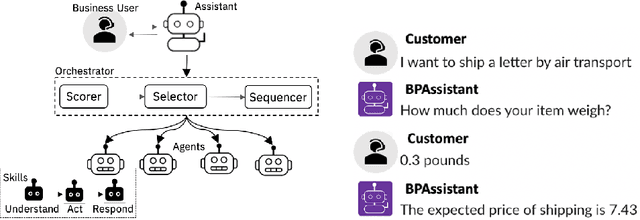


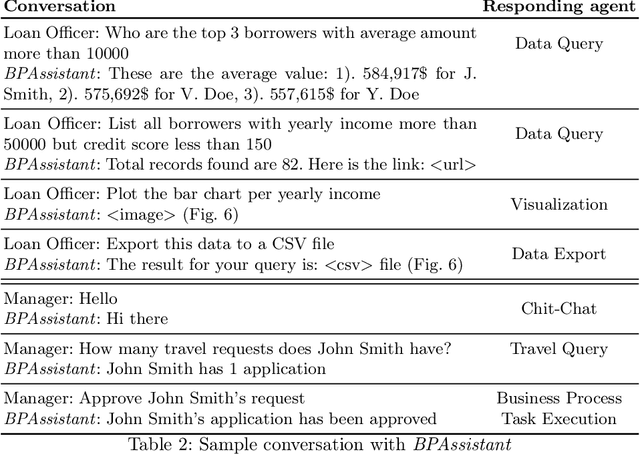
Abstract:Robotic process automation (RPA) has emerged as the leading approach to automate tasks in business processes. Moving away from back-end automation, RPA automated the mouse-click on user interfaces; this outside-in approach reduced the overhead of updating legacy software. However, its many shortcomings, namely its lack of accessibility to business users, have prevented its widespread adoption in highly regulated industries. In this work, we explore interactive automation in the form of a conversational digital assistant. It allows business users to interact with and customize their automation solutions through natural language. The framework, which creates such assistants, relies on a multi-agent orchestration model and conversational wrappers for autonomous agents including RPAs. We demonstrate the effectiveness of our proposed approach on a loan approval business process and a travel preapproval business process.
FfDL : A Flexible Multi-tenant Deep Learning Platform
Sep 14, 2019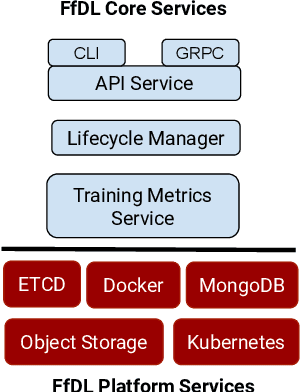

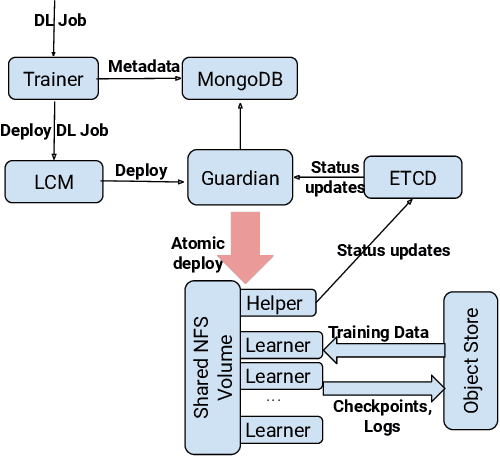
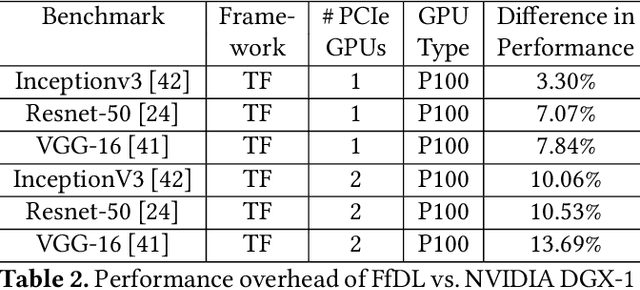
Abstract:Deep learning (DL) is becoming increasingly popular in several application domains and has made several new application features involving computer vision, speech recognition and synthesis, self-driving automobiles, drug design, etc. feasible and accurate. As a result, large scale on-premise and cloud-hosted deep learning platforms have become essential infrastructure in many organizations. These systems accept, schedule, manage and execute DL training jobs at scale. This paper describes the design, implementation and our experiences with FfDL, a DL platform used at IBM. We describe how our design balances dependability with scalability, elasticity, flexibility and efficiency. We examine FfDL qualitatively through a retrospective look at the lessons learned from building, operating, and supporting FfDL; and quantitatively through a detailed empirical evaluation of FfDL, including the overheads introduced by the platform for various deep learning models, the load and performance observed in a real case study using FfDL within our organization, the frequency of various faults observed including unanticipated faults, and experiments demonstrating the benefits of various scheduling policies. FfDL has been open-sourced.
SysML: The New Frontier of Machine Learning Systems
May 01, 2019Abstract:Machine learning (ML) techniques are enjoying rapidly increasing adoption. However, designing and implementing the systems that support ML models in real-world deployments remains a significant obstacle, in large part due to the radically different development and deployment profile of modern ML methods, and the range of practical concerns that come with broader adoption. We propose to foster a new systems machine learning research community at the intersection of the traditional systems and ML communities, focused on topics such as hardware systems for ML, software systems for ML, and ML optimized for metrics beyond predictive accuracy. To do this, we describe a new conference, SysML, that explicitly targets research at the intersection of systems and machine learning with a program committee split evenly between experts in systems and ML, and an explicit focus on topics at the intersection of the two.
 Add to Chrome
Add to Chrome Add to Firefox
Add to Firefox Add to Edge
Add to Edge